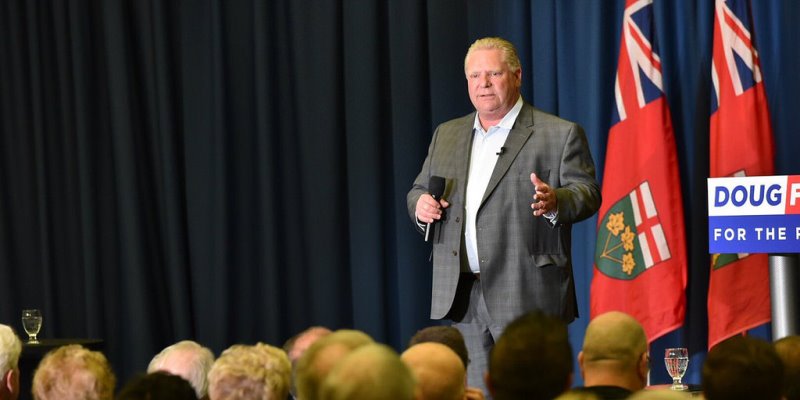Ontario’s combined government debt exceeds 100% of GDP

Next week, the Ford government will table its budget for fiscal year 2021/22. Ontario’s government finances have taken a beating over the past 15 years. In 2007/08, before the global financial crisis, Ontario’s provincial debt equalled 26.6 per cent of GDP. While it was by no means the lowest debt province, it was middle of the pack—and well behind the posterchild for provincial debt, Quebec, which stood at 40.6 per cent.
Fast-forward to 2020/21 and Ontario has overtaken Quebec on the debt chart. In fact, combined federal and provincial debt in Ontario now equals 100 per cent of GDP. And even before COVID struck, the Ford government planned to run budget deficits for the foreseeable future. In short, Ontario’s finances are in bad shape and things won’t get better without decisive fiscal action post-pandemic.
Government fiscal plans are often thrown into disarray by external events. Such was the case with the global financial crisis in 2008, which dealt a short-term blow to the province’s finances. But the decision by successive Ontario governments to undertake very gradual deficit-reduction efforts—rather than more aggressively eliminating the deficit through nominal spending cuts after the recession—undermined the path back to budget balance. Because of this, even before COVID, Ontario wasn’t slated to balance the provincial budget until 2023/24—that’s 15 years after the global financial crisis.
The result?
Since 2007/08, provincial debt (as a percentage of GDP) has increased by nearly 20 percentage points. And when adding in the province’s share of federal debt, Ontarians face a government debt burden of more than 100 per cent of GDP.
To put these numbers into context, consider this. In 2007/08, provincial net debt was $15,400 per person in Ontario. By 2020/21, that number had grown to $27,010—an increase of $11,700. That increase is just shy of the total amount of provincial debt per person in the lowest debt province, British Columbia.
While the government could not have foreseen COVID-19, periodic recessions happen. Continually delaying budget balance creates the risk of never balancing the budget at all. This means continual debt accumulation on top of the debt accumulation from capital spending, which is not included in deficit numbers. It wouldn’t be fair to blame successive premiers for a specific unforeseeable event, but they should have known to eventually expect an external economic shock that would make the task of restoring the province’s finances more difficult.
Coming out of the pandemic and recession, the Ford government should chart a quick path to budget balance. Continuing to kick the can down the road will only get riskier as the province becomes more indebted. Decisive action is required to restore Ontario’s finances.
Author:
Subscribe to the Fraser Institute
Get the latest news from the Fraser Institute on the latest research studies, news and events.

